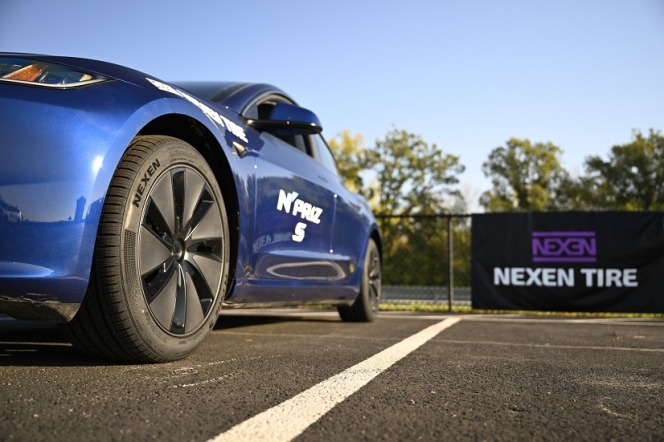
In 2019, the global two-wheeler tyre market stood at 453.15 million units, while the Indian market share was 90.14 million. The global market is expected to grow at a CAGR of 9.81% until 2025, projects a study by TechSci Research. The Indian growth rate would be at a CAGR of 12.31% during the forecast period..
The rise in demand for two-wheelers, expanding two-wheeler fleet size, and more importantly, increasing in per capita income of the population across the globe are the major factors contributing to the growth of two-wheeler tyre market. An increase in sales of two-wheelers and government initiatives to supplement the growth of electric two wheelers are fuelling the growth of the two-wheeler tyre market globally, the latest research findings by leading market analysts TechSci Research say.
Many people in urban cities choose two-wheelers rather than cars to avoid traffic for timesaving. Moreover, an increase in affordability of motorcycles along with many available finance schemes and EMI options have also augmented sales of two wheelers. Secondly, rise in consumer’s buying capacity and obsession among youth for two-wheelers are the main reasons for growth in demand for two-wheeler, which is further creating demand for two-wheeler tyres.
Increasing usage of the motorcycles as a more suitable mode of transport compared to public transport and extensive usage in business activities by various e-commerce companies are other major factors driving the growth of two-wheeler tyre market. Regular and increased use of two-wheelers is expected to increase the rate of replacement, which in turn is anticipated to positively influence the demand for replacement tyres used in motorcycle, scooters, and mopeds, etc.
Big players: India, China
Globally, the two-wheeler market is majorly dominated by the Asia Pacific. Two of the major countries that are the prominent player in the Asia Pacific region are India (largest player in the world) and China. Thus, these countries account for the highest number of sales in two-wheeler (India 2019 sales were 21 million and China 2019 sales were 16 million) as well as two-wheeler tyres. Both counties account for over more than 80% in the global two-wheeler tyre market. Other emerging markets for two-wheeler tyres include Indonesia, Vietnam, Japan, Thailand, etc.

Globally, electric and conventional two-wheeler manufacturers are paying more attention to the increasing demand for two-wheelers from various commercial sector. Motorcycle manufacturers are producing motorcycles for commercial demand in many regions. Major demand has been witnessed in regions such as Africa where bikes are a commonly used mode of transport for taxi services. Hence, an overall increase in the sales of two-wheeler bike taxis is expected to boost the sales of two-wheeler tyres.
One more major factor that has been augmenting demand for two-wheelers across the globe is poor road conditions in many countries in Asian and African regions. A large demand for two-wheelers comes from the countries in the Asia-Pacific region from countries such as India, China, Bangladesh, Vietnam, Indonesia, etc., where the road infrastructure is not properly developed, which is promoting adoption of motorcycle compared to cars and other four-wheelers. Poorly constructed and broken roads are also one of the reasons for the replacement of tyres before the expected run time. This are some of the factors fuelling the demand for two-wheeler tyres across these regions, the study report points out.
Corona factor
Additionally, the outbreak of coronavirus had a high impact on the two-wheeler industry resulting in fall in the demand of two-wheelers, which has further led to decline in sales of two-wheeler tyres. Many of the major global two-wheeler manufacturers companies such as Hero MotoCorp, TVS, Bajaj Auto have stopped manufacturing for a month or more in many of the big countries such as India, thereby witnessing a slowdown in the production and sales of two-wheelers. All these companies have faced the demand contraction, which is expected to continue over the coming years due to which, companies are facing a decline in sales, compared to previous year, every month. The sales currently are only being driven by limited customers, who are trying to avoid public transport, especially the office and business users but this is not enough for the companies to sustain in the global market. After COVID-19 lockdowns is lifted, companies are expecting two-wheeler sales to recover to somewhat pre COVID-19 sales levels. Thus, this would directly impact the market for two-wheeler tyres also.

The demand for a two-wheeler tyre originates from two sectors – Original Equipment Manufacturer (OEM) and replacement demand for tyres. Additionally, global expansion of two-wheeler sales networks by major two-wheeler manufacturers to target those countries where they have less presence, increasing purchasing power of people in developing countries and preference for two-wheelers over other vehicles due to underdeveloped road infrastructure, especially in developing countries is expected to boost the demand for OEM tyres as two-wheeler sales increase. On the other hand, due to the consistent increase in the fleet size of motorcycle, scooters and mopeds is expected to fuel the demand for replacement tyres for two-wheelers.

The TechSci Research study says that in the global two-wheeler tyre market, replacement tyre demand held a dominating market share of around 72.11%, which is projected to reach 73.38% by 2025. Analysing the global market share of two-wheeler tyres by vehicle type, scooters and mopeds tyres hold major market share among two-wheeler tyres followed by motorcycle tyres. This is due to the increasing usage of scooters and mopeds for private transportation by majority of population such as for office goers, college students, etc.

Major players
The global two-wheeler tyre market is dominated by many big players. Many companies operating in the global two-wheeler tyre market are strengthening their dealer/distributors networks and also focusing on customer requirements for different driving conditions. Major companies operating in the global two- wheeler tyre market include MRF, Giti Tyre, Hangzhou Zhongce Rubber, TVS Srichakra Limited, CEAT Limited, Michelin, Continental, etc.
Asia-Pacific has become a leading manufacturing and consumption hub for two-wheeler tyres owing to the largest fleet size and highest sales in the world. Additionally, the region holds the largest market share in the market. It is anticipated that the market share of the region in two-wheeler tyres market is expected to reach 89.02% by 2025 from 88.30% in 2019.

The global two-wheeler tyre industry is anticipated to exhibit significant growth during the forecast period as new manufacturers are entering the tyre as well as two-wheeler industry, income of the population is increasing, urbanisation is on the rise, global manufacturers are expanding their market presence across the untapped areas, etc. These factors are anticipated to supplement the sales of two-wheelers and two-wheeler tyres across the globe until 2025.
Indian scene
According to the TechSci Research report, in 2019, India two-wheeler tyre market stood at 90.14 million units and is expected to grow at a CAGR of 12.31% during the forecast period.
The scooter tyre market is increasing quickly in India over the last few years. An increase in the number of working females is also rising the demand for scooters as it is a user-friendly vehicle. And further is also adopted by many commuters due to easy driving and stock carrying capability.
The government is also taking initiatives for people, which is also driving the sales of two-wheeler in some southern states of India which is directly impacting the tyre industry, says the report.

Additionally, the government took steps and have introduced a program known as Amma bike schemes, which focuses on every working woman in Tamil Nadu for providing a subsidy of 50% i.e., up to INR25,000 on purchase of two-wheelers. Therefore, sales of two-wheelers in the states have gone up after the introduction of this scheme.

India electric two-wheeler market is growing continuously owing to government’s support and some subsidies which come under “FAME India” scheme and phased manufacturing programme (PMP), which will help promote the manufacturing of electric vehicles domestically. To provide further boost to electric mobility and to enhance and promote the development of electric vehicles, the government has further reduced basic customs duty on electric vehicles and their assemblies, parts, and subparts. In India, electric two-wheeler manufacturers are diverting their focus on research and development to manufacture technologically advanced and affordable electric two-wheelers, which is further expected to drive the electric two-wheeler market in India during the forecast period. This is expected to lead to robust growth in India two-wheeler tyre industry as well.
The lockdown that was put by the Government of India in March 2020 to restrict the COVID19 spread in India has affected the two-wheeler industry resulting in dropping down the sales of two-wheelers over the last 3 months. However, the two-wheeler industry is likely to recover slowly as the lockdown restrictions have been eased by the government but the overall market will take at least next year to recover.
Analysing the market share of two-wheeler tyres in India, motorcycle tyres hold major market share among two-wheeler tyres. This is due to the usage of motorcycles in private mode of transportation by most middle class and lower middle-class population, by delivery services, by restaurant delivery services and also, motorcycles are the most commonly used sharing bikes by most of the ride hailing companies such as Uber bike and Ola bike for transportation services. Scooters and mopeds which are majorly used by girls are comparatively less in numbers than motorcycle users but in future, the trend is expected to change as more population is shifting toward the scooters and mopeds as they are easy to handle and also gearless, which provides convenience in Indian traffic.
ENDS
Apollo Tyres Expands Industry-Academia Collaboration
- By TT News
- October 31, 2025

Apollo Tyres’ Chennai Plant has formalised a multi-institutional partnership through a Memorandum of Understanding (MoU) with five esteemed engineering colleges from Kerala, Odisha and Tamil Nadu. This strategic alliance is designed to fortify the nexus between industry and academia, with a focused objective of developing a robust, industry-ready talent pool to meet future sector demands. The collaboration represents a significant investment in the human capital pipeline, directly linking academic output with corporate needs.
The collaborating institutions in this forward-looking initiative are SASTRA University, SRM TRP Engineering College, JJ College Of Engineering & Technology, Ma'din Academy and Nilachal Polytechnic. The partnership’s framework encompasses a comprehensive suite of initiatives aimed at mutual development. For students, it provides a structured pathway to employment, including placement assurances during their final year and enhanced campus hiring opportunities. To bridge theoretical knowledge with practical application, the programme will facilitate organised industry visits to Apollo’s manufacturing facility, offering students firsthand exposure to modern production processes. Complementing this, a series of expert-led sessions, technical lectures and seminars will be delivered by in-house professionals from Apollo Tyres, ensuring the curriculum remains aligned with evolving industry practices.
This symbiotic engagement yields significant strategic benefits for all stakeholders. Students gain invaluable industry awareness and confidence, while academic institutions enhance their curriculum's practical relevance. For Apollo Tyres, the initiative enables the early identification and nurturing of prospective talent, effectively streamlining recruitment and fostering a positive perception of manufacturing careers.
Wacker Chemie Cuts Outlook As Weak Demand Hits Q3 Earnings
- By TT News
- October 30, 2025

German chemicals group Wacker Chemie lowered its full-year outlook after third-quarter profit fell by nearly a quarter, hit by weak demand and intense competition from China.
The Munich-based company, which makes silicones and polysilicon for semiconductors and solar panels, reported earnings before interest, tax, depreciation and amortisation (EBITDA) of 112 million euros ($121.6 million) for the July-September period, down 23 percent from 145 million euros a year earlier.
Sales fell 6 percent to 1.34 billion euros from 1.43 billion euros, weighed down by lower prices and unfavourable currency effects.
The results were broadly in line with analyst expectations, which had forecast sales of 1.37 billion euros and EBITDA of 101 million euros, according to Vara Research.
Wacker swung to an operating loss of 20 million euros in the quarter, from a profit of 30 million euros a year ago, whilst net income turned negative to 82 million euros, compared with a profit of 34 million euros.
“The chemical industry is under pressure – worldwide, but in Europe in particular. The economic situation is tense, and market demand is weak. At the same time, the market environment is changing, and competitive pressure is high – especially from China. And this is something that we are experiencing at WACKER as well,” Chief Executive Christian Hartel said.
“Like many other companies, we had to lower our full-year forecast in the middle of this year. Even though we closed Q3 in line with market expectations, sales and earnings were again down year on year in almost all business divisions,” he said.
Wacker launched a comprehensive cost-cutting programme in October aimed at achieving significant savings in production and administration, with implementation planned to begin in the first quarter of 2026.
The company now expects full-year sales at the lower end of its previously forecast range of 5.5 billion to 5.9 billion euros, with EBITDA in the lower half of its 500 million to 700 million euro range. It also anticipates a negative net result for the year, significantly below the previous year.
The company’s silicones division, its most significant business, saw sales decline 7 percent to 673 million euros, whilst EBITDA fell 19 percent to 86 million euros. The polysilicon unit, which serves both solar and semiconductor markets, reported a 40 percent drop in EBITDA to 18 million euros, as low prices and exchange-rate effects offset strong hyperpure polysilicon performance in semiconductors.
Wacker’s workforce declined to 16,616 employees at the end of September from 16,724 three months earlier.
Nokian Tyres To Cut 80 Jobs, Lay Off 650 Workers Temporarily In Restructuring
- By TT News
- October 30, 2025

Finnish tyre manufacturer Nokian Tyres said it would cut 80 permanent positions and temporarily lay off about 650 workers as part of measures to improve financial performance and operational efficiency.
The company has begun personnel negotiations affecting roughly 1,700 permanent white-collar positions across its global operations, including group functions and all business units.
The temporary layoffs will affect blue-collar and white-collar staff at passenger car and heavy tyre production facilities in Nokia, Finland, for up to 90 days per person. These measures could be implemented by the end of 2026.
The permanent job cuts, targeting white-collar roles, may take effect by late 2025, the company said.
Nokian Tyres employed approximately 4,400 people worldwide at the end of September, with 2,045 staff based in Finland.
The negotiations will commence immediately in line with local labour legislation in each country where the company operates.
The announcement comes as tyre manufacturers face pressure from volatile raw material costs and shifting demand patterns in key markets.
Nokian Tyres, known for its winter tyres and premium products, has been restructuring its operations following geopolitical challenges that affected its Russian production and sales.
Nexen Tire Stages Two-Phase Launch For Flagship N’Priz S And N’Fera Sport Tyres
- By TT News
- October 30, 2025

Capitalising on a period of significant growth, Nexen Tire is strategically introducing two new passenger tyres, the N’Priz S and the N’Fera Sport, through a comprehensive two-stage launch. This initiative represents one of the company's most substantial product introductions, designed to engage key audiences from media to consumers through immersive, hands-on experiences.
The launch commenced earlier this fall with an exclusive Ride N’ Drive event at the Illinois Autobahn Country Club. There, participants had the opportunity to personally evaluate the new tyres across a variety of driving conditions, including autocross challenges and highway simulations. This direct testing allowed them to assess critical performance attributes such as handling and comfort while also facilitating valuable interaction with Nexen’s own engineering and product development teams.
The campaign now advances to a broader stage, moving to the 2025 SEMA Show in Las Vegas. Nexen Tire America will host an extensive activation featuring a 240-foot booth where the N’Priz S and N’Fera Sport will be prominently displayed. The exhibit will include original equipment vehicles, motorsports trucks competing on Nexen tires and a dynamic schedule of live discussions with company leadership, technical experts and brand partners on the specially created Nexen Live stage. This platform will also serve to showcase the brand's latest progress in areas like tyre design simulation and electric vehicle development.
These two tyres are engineered to meet the distinct needs of different drivers, thereby broadening Nexen’s market reach. The N’Priz S is a grand-touring all-season tyre that is also EV-compatible, focusing on delivering a quiet, comfortable ride and reliable traction for daily commuting and long-distance travel. It incorporates advanced AI performance prediction and virtual simulation technology to optimise tread design and reduce cabin noise, alongside a specialised rubber compound aimed at enhancing tread longevity and overall efficiency.
In contrast, the N’Fera Sport is an ultra-high-performance summer tyre built for drivers seeking precision steering response and superior control in warm conditions. Its design prioritises direct feedback, confident wet-road braking and stability while still maintaining usability for spirited street driving. The N’Fera Sport is scheduled to arrive at dealers this fall, with the N’Priz S following in early 2026. Together, these launches underscore Nexen’s commitment to technological innovation and creating meaningful connections with the driving public.
Brian YoonSeok Han, CEO, Nexen Tire America, said, “Nexen Tire’s growth in the US is being fuelled by innovation and experience. We wanted people to feel what sets these new tyres apart, including how they handle, how they perform and how they represent our continued commitment to excellence. Ride N’ Drive gave us that direct connection with our partners, and now SEMA allows us to share that story on a global stage.”
Theresa Kapper, Director of Marketing for Nexen Tire America, said, “Launching the N’Priz S and N’Fera Sport through both Ride N' Drive and SEMA us to connect every piece of our story, from innovation and testing to excitement and scale. It’s about showing not only what these products can do, but what Nexen stands for as a brand. This rollout reflects the growth, energy and ambition driving Nexen Tire forward in the US market.”







Comments (0)
ADD COMMENT